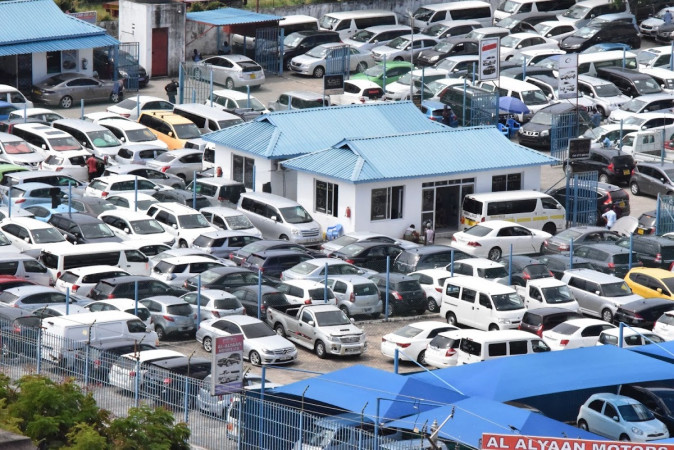Global demand for used cars spike cost in Kenya
By Jacktone Lawi and Reuben.Mwambingu, July 7, 2022Kenyans seeking to acquire used cars must dig deeper into their pockets as the prices are projected to increase further on global challenges in the value chain.
This after Kenya which is largely served by Japanese auto models feels from a shift in global consumption trends as a recession and shortage of microchips has sparked renewed demand for second hand vehicles abroad.
These after buyers in source markets such as Japan and the UK scaled down production owing to shortages of semiconductors used in electronic devices.
In response to shortages buyers in the developed markets who would typically buy new cars but have now resorted to second-hand models.
Car Importers Association of Kenya (CIAK) chairman Peter Otieno estimates the cost of imported vehicles has increased by between 20 to 30 per cent in the last three months.
“Many reasons have been given including the reports of global shortage of microchips that has affected manufacturing of vehicles. As a result, the developed countries are now importing used motor vehicles to their country,” Otieno said.
Source markets
With a biting shortage of new vehicles manufactured in Japan and other source markets like UK, these countries have been reluctant to release their vehicles creating a supply challenge.
As a result, Otieno said, amid dwindling economic fortunes the demand for vehicles in source markets has generated stiff competition for imports in countries like Kenya, as people opt for used cars.
“Because there is no production of vehicles, they prefer not to release their vehicles to the market. This is because they prefer to use the ones that they are having as they monitor the situation and how the production will behave going forward,” said Otieno in an interview with Business Hub yesterday.
Besides the dollar shortage and high cost of the dollar, Otieno also fingered Kenya’s current unique political and economic situation, as other reason spiking the cost of vehicles.
“The upcoming election is not like previous elections. In the previous elections we would see people spending a lot on importing vehicles. There was a lot of money and people would import a lot of vehicles and especially the high end vehicles,” Otieno said.
“This time is a little bit different because we are not having so many sales. It is difficult to understand but the economic situation could be the reason.”
Even with ships coming in to call at the Port of Mombasa with imports, the prices of vehicles are high in Japan due to the high cost of the dollar, which have also affected sales.
“Due to high prices, sales have also gone low by between 35 and 30 per cent… The economic situation in the country vis-à-vis the shortage of dollars and high prices in Japan have affected the sales tremendously,” he said.
Constrained supplies
Charles Munyori, the secretary-general of the Kenya Auto Bazaar Association, agrees that apart from the strengthening dollar, the high demand and constrained supply has really pushed up the prices up.
“The global rate of new vehicle manufacturing has not fully resumed after Covid-19 this means there is generally a shortage in the market,” said Munyori.
Nissan Note which used to go for Sh650,000 has risen to about Sh950,000 on the back of poor performance by Kenyan Shilling which now retails at around Sh122 against the dollar.
The landed price of low-range cars such as Vitz has also increased 44 percent. “Vitz has witnessed 10 percent rise on the landing price pushing it to above Sh1 million at the Yards,” Munyori added.
More Articles

